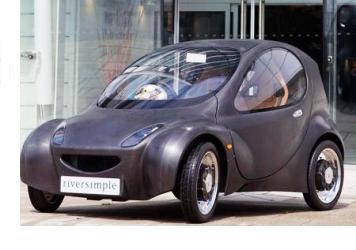 The entrepreneurs behind the latest hydrogen-powered concept car plan to transform the way we use our cars by replacing outright ownership with a system similar to a mobile phone contract.
The entrepreneurs behind the latest hydrogen-powered concept car plan to transform the way we use our cars by replacing outright ownership with a system similar to a mobile phone contract.
The two-seat Riversimple Urban Car boasts a top speed of 50mph and a 240-mile range. When the car goes into production in four years time, it will not be sold but leased for £200 a month, as part of a package including maintenance and fuel.
The Riversimple has a carbon fibre body and electric motors in its wheels to keep its weight to a minimum. The car produces 31g of carbon dioxide per kilometre, compared with 89g for the latest Toyota Prius.
How do hydrogen cars work?
Hydrogen can be used as a fuel for electric cars thereby doing away with the need for a battery – the car does not have an engine in the conventional sense as it uses instead a fuel cell stack, a device that uses an electrochemical reaction between hydrogen and oxygen to produce electricity to power a motor. These so-called fuel cell vehicles can travel longer distances than electric vehicles that need to be re-charged directly from a mains supply.
The venture is backed by Sebastian Piech, a great-grandson of Ferdinand Porsche, who in 1898 worked on the Lohner Electric Chaise – one of the earliest electric cars. The Lohner car had a top speed of 31mph and a maximum range of 30 miles; a performance bettered only slightly by today’s electric city cars.
How is the Riversimple different?
Riversimple is not the first company to offer a hydrogen car – Honda has already started production of the FCX Clarity hydrogen fuel cell about 70 which will be built each year – but its approach to car making is radically different to any other manufacturer. Their designs are ‘open source’ which means they are freely available to other car makers who would like to exploit the technology. The designers hope to encourage a environmentally-sustainable alternative to conventional car manufacturing, where cars are bought, driven into the ground and junked. Riversimple needs an investment of £20 million to continue its development of the hydrogen car.
0 Comments View now